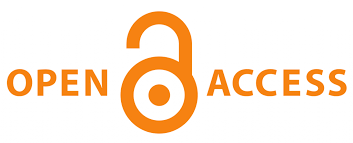Analysis of various aspects and state of the distance education system in Russia
- Authors: Belousov A.I.1, Gromova T.V.2
-
Affiliations:
- Samara State Aerospace University
- Samara State University of Economics
- Issue: Vol 14, No 2 (2015)
- Pages: 234-247
- Section: ECONOMICS AND HUMANITIES
- URL: https://journals.ssau.ru/vestnik/article/view/2675
- DOI: https://doi.org/10.18287/2412-7329-2015-14-2-234-247
- ID: 2675
Cite item
Full Text
Abstract
The article presents the results of the analysis of various aspects and status of distance learning to identify the positive aspects and disadvantages, problems, and possible solutions to improve the efficiency of the educational process. Distance learning as an educational problem and at the same time as a new form of getting education calls for teachers of a new breed. This is a teacher who constantly supports the distance learner, has a command of distance learning technologies and a pool of techniques and methods, first of all, computer skills. To solve the problem it is necessary to determine the essence of a number of key concepts of distance learning, to reveal the multidimensionality of the problem of its organization, to analyze the foreign and domestic experience of training teachers for distance learning and plan the ways of preserving and upscaling the human, scientific, educational and material potential accumulated by the domestic system of education, to apply the existing and prospective means of new information technologies.
About the authors
A. I. Belousov
Samara State Aerospace University
Author for correspondence.
Email: aibelousov@mail.ru
Doctor of Science (Engineering)
Professor of the Department of Construction and Design of Aircraft Engines
Russian FederationT. V. Gromova
Samara State University of Economics
Email: gromova73@yandex.ru
Doctor of Education, Professor of the Department of Foreign Languages
Russian FederationReferences
- The Law «On Education of the Russian Federation». Vestnik education. 1996. № 7. P. 4-11.
- Shayls Dj. Kommunikativnost’ v obuchenii sovremennym yazykam. [Communication skills in teaching modern languages]. Strasbourg. Council of Europe press, 1995. 348 p.
- Belousov A.I., Gromova T.V. Formirovanie gotovnosti prepodavateley k ispol'zovaniyu distantsionnykh tekhnologiy obucheniya. Sbornik trudov 7-y mezhdunarodnoy nauch.-prakticheskoy konferentsii «Infokommunikatsionnye tekhnologii global'nogo informatsionnogo obshchestva». Kazan: Mininformsvyazi RTС, 2009. C. 259-266.
- Belousov A.I., Gromova T.V. Teachers` readiness to use distance technologies as a guarantee term to modernize education. Vestnik of the Samara State Aerospace University. 2009. No. 3 (19), ч.1. С. 106-114.
- Kraineva R.K. Sistema upravleniya obrazovatel'nymi uslugami s ispol'zovaniem distantsionnykh tekhnologiy: avtoref. dis. kand. ekon. nauk [The system of controlling educational services using distant learning technologies: Synopsis of a thesis of the Candidate of Science (Economics)]. Samara, 2009. 22 p.
- Rossiyskiy portal otkrytogo obrazovaniya: obuchenie, opyt, organizatsiya / pod red. V.I. Soldatkina [Russian portal of open education: training, experience, organization / ed. by V.I. Soldatkin]. M.: Moscow State Industrial University Publ., 2003. 508 p.
- Borisova N.V. Educational technologies and open and distance learning experience of their complex applications. Quality Assurance System in Distance Education. V. 1. Zhukovsky: MIM LINK, 2001. P. 101-113.
- Polat E.S. Novye pedagogicheskie I informatsionnye tekhnologii v sisteme obrazovaniya. [New pedagogical and information technologies in the education system]. M.: Academiya Publ., 2001. 270 p.
- Khutorskoy A.V. Scientific and pedagogical background remote pedagogy. Open Education. 2001. No 2. P. 30-35.
- Belousov A.I., Gromova T.V. Identifying the high school teachers' readiness to distance learning in the modernization of the education system. Vestnik of the Samara State Aerospace University. 2011. No 3 (27), part 2. P. 287-295.
- Gromova T.V. Aktual’nye aspekty formirovaniya professional’noy gotovnosti prepodavatelya vuza k deyatel’nosti v sisteme distantsionnogo obucheniya. [Topical aspects of the formation of professional readiness of a higher-school teacher to work in the system of distance learning]. Samara: Glagol Publ., 2011. 268 p.
Supplementary files




















